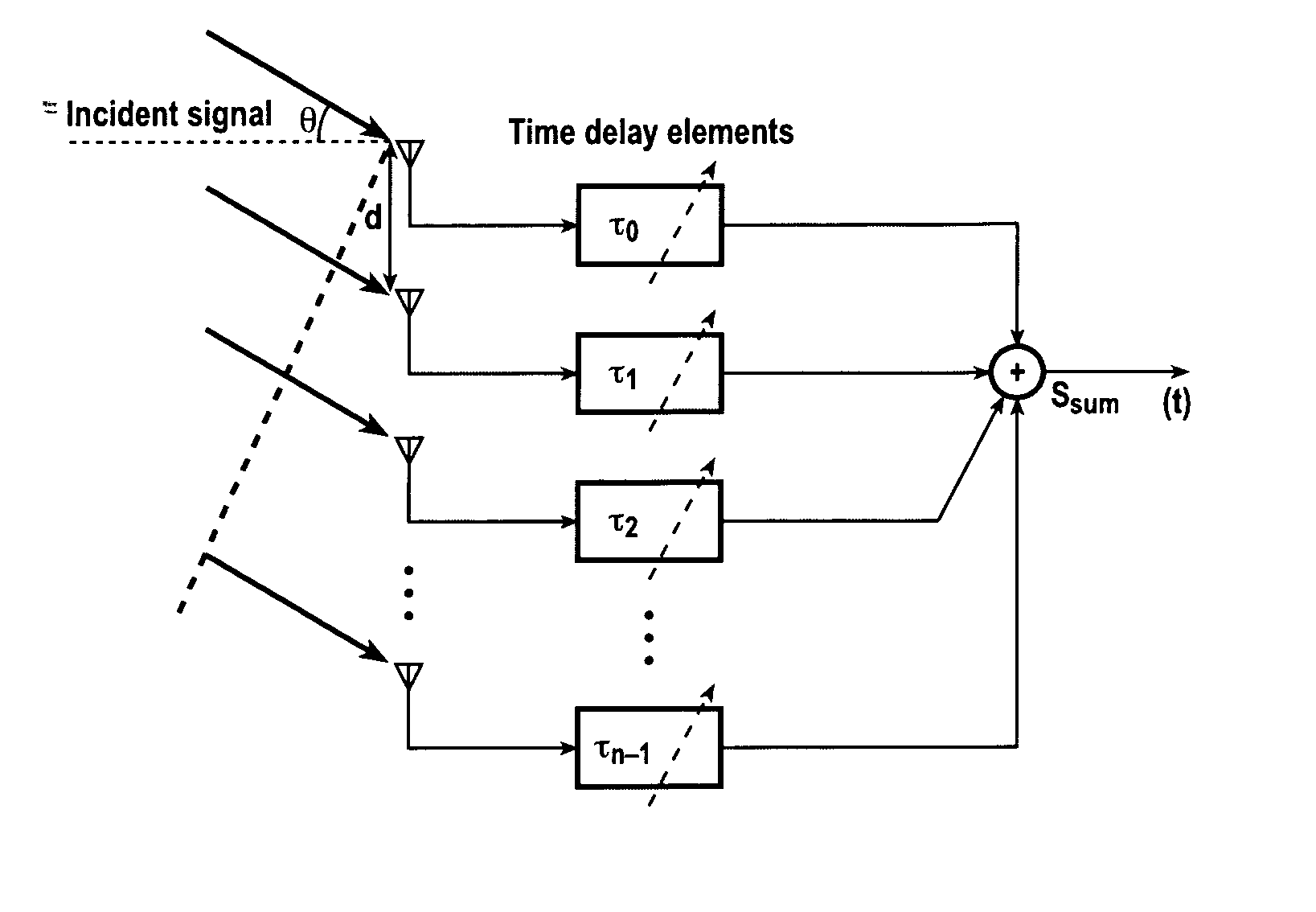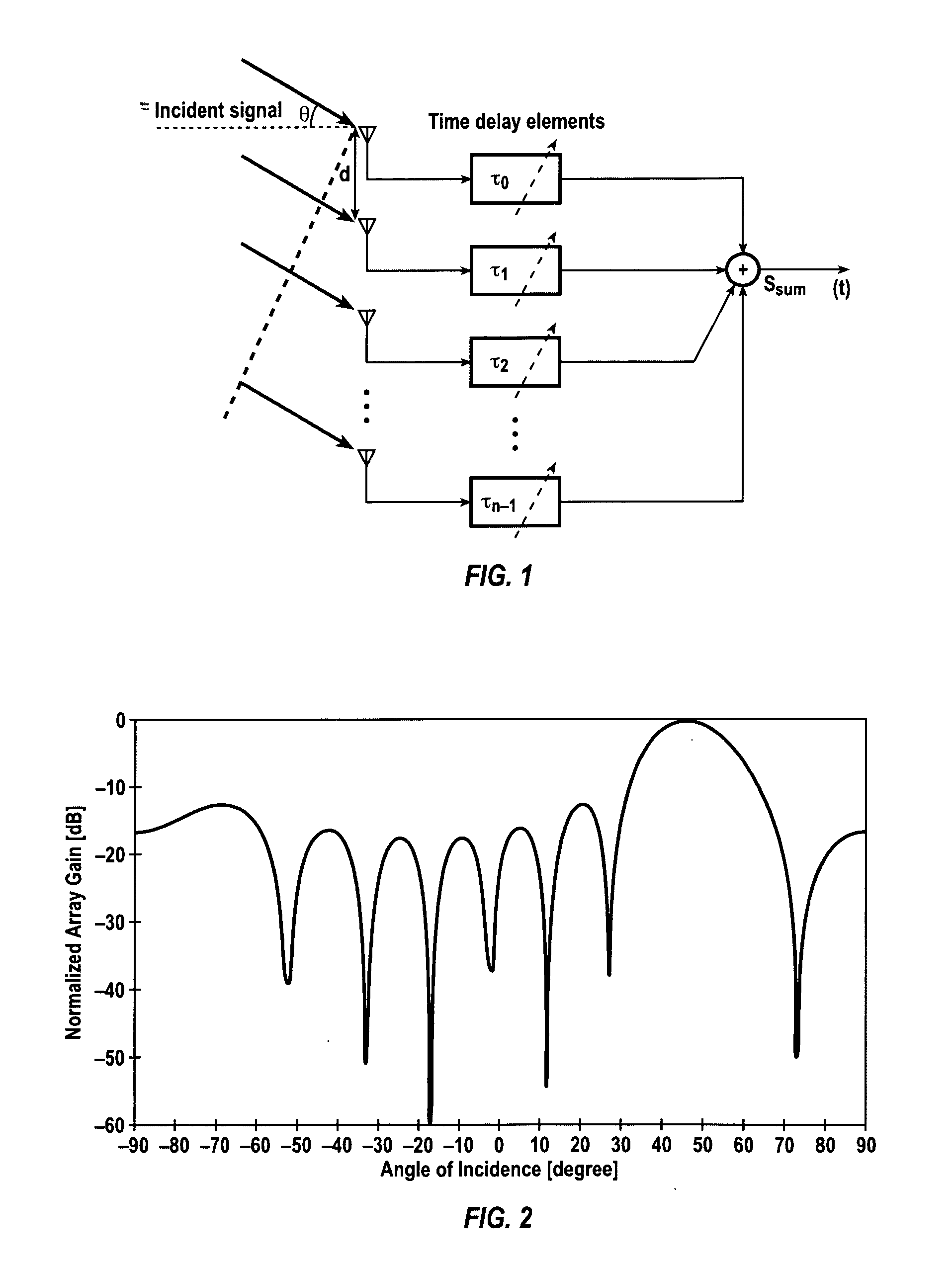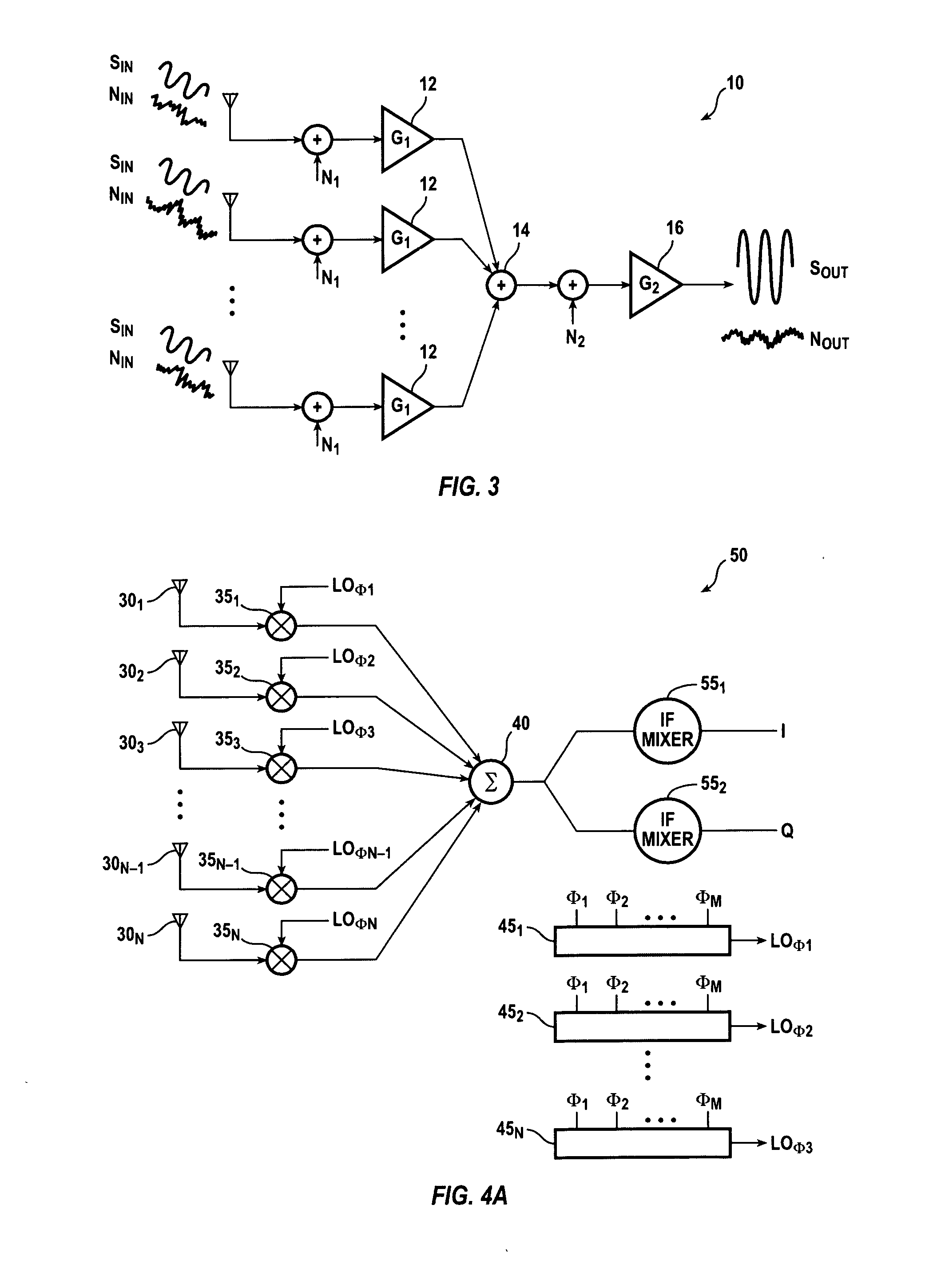Monolithic silicon-based phased arrays for communications and radars
a phased array and silicon-based technology, applied in the field of wireless communications, can solve the problems of system waste, increased interference, and increased effects of multi-path fading and interferen
- Summary
- Abstract
- Description
- Claims
- Application Information
AI Technical Summary
Benefits of technology
Problems solved by technology
Method used
Image
Examples
Embodiment Construction
[0053] In accordance with one embodiment of the present invention, an N-element phased-array receiver, such as phased-array receiver 50 shown in FIG. 4A, includes, in part, N RF mixers 351, 352, 353 . . . 35N-1, 35N, and a signal summing block 40. Each RF mixer 35i, where i is an integer ranging from 1 to N, is adapted to receive a pair of input signals. The first signal applied to each RF mixer 35i is an RF signal received by a receive antenna 30i associated with that RF mixer 35i. Accordingly, there are N receive antennas 30i each associated with a different one of the N RF mixers 35i. The second signal applied to each RF mixer 35 is a phase signal LOΦi selected from among M phases Φ1, Φ2 . . . ΦM of a local oscillator. Each of N phase selectors 451, 452, 453 . . . 45N-1, 45N—each phase selector being associated with a different one of the N RF mixers 35i—receives the M different phases Φ1, Φ2, . . . ΦM of the local oscillator independently and, in response to one or more control ...
PUM
 Login to View More
Login to View More Abstract
Description
Claims
Application Information
 Login to View More
Login to View More - R&D
- Intellectual Property
- Life Sciences
- Materials
- Tech Scout
- Unparalleled Data Quality
- Higher Quality Content
- 60% Fewer Hallucinations
Browse by: Latest US Patents, China's latest patents, Technical Efficacy Thesaurus, Application Domain, Technology Topic, Popular Technical Reports.
© 2025 PatSnap. All rights reserved.Legal|Privacy policy|Modern Slavery Act Transparency Statement|Sitemap|About US| Contact US: help@patsnap.com



